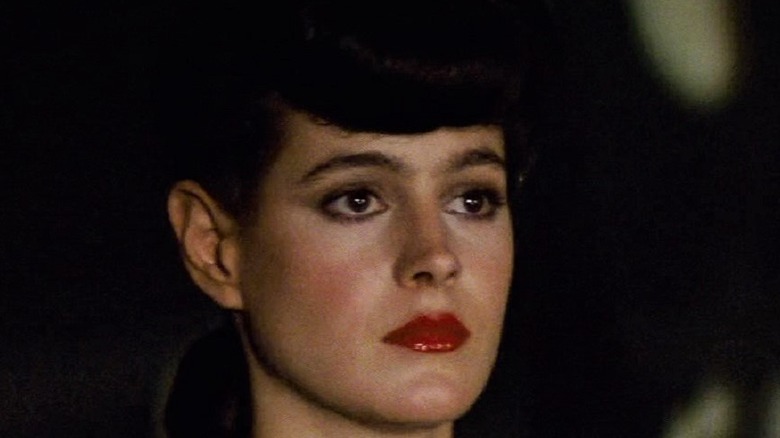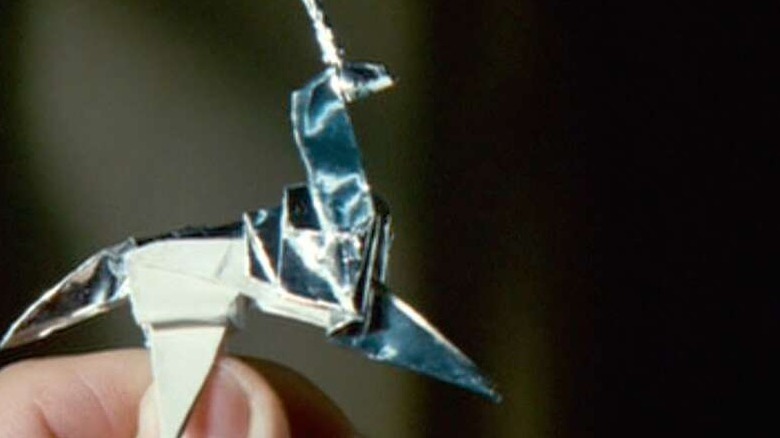The Deleted Blade Runner Scene That Would Have Changed Everything
Philip K. Dick's book "Do Androids Dream of Electric Sheep?" provided the inspiration for Ridley Scott's "Blade Runner," and the question of synthetic dreaming is important to the movie's plot. The story follows Rick Deckard (Harrison Ford), a specialized type of hunter-detective known as a Blade Runner whose job is to destroy, or "retire," rogue synthetic humans that possess superhuman qualities — and often unstable and uncontrollable personalities — known as replicants. The original version of the film was released in 1982, though there are currently eight different cuts of the movie, according to The Verge. Some involve voiceover narration, others have additional scenes, and some even have different endings.
One of the film's most enduring qualities is that it ends on the ambiguous question of whether or not Deckard himself is an unknowing replicant. However, that question may have actually been answered by a certain deleted scene that appeared in one of the many different versions of "Blade Runner."
The significance of Deckard's unicorn dream
The scene in question hails from "Blade Runner: The Final Cut." In it, we see a daydreaming Deckard sitting at a piano and imagining a majestic unicorn running through a forest. He may have been remembering a moment from a different Ridley Scott film, the fantasy epic "Legend," but it's more likely that this scene is setting up a moment that plays out during the movie's ending. While preparing to flee with Rachael (Sean Young), a replicant Deckard was ordered to retire who he instead fell in love with, he comes across a tiny, folded origami unicorn on the ground.
This is a not-so-subtle hint that the person who left the unicorn, Deckard's partner in replicant retirement Gaff (Edward James Olmos), knew that Deckard had been dreaming about such a creature earlier. If that is the case, then it would heavily imply that Deckard is indeed a replicant, as one of their characteristics is that they have implanted, artificial memories. As Scott himself told Wired in a 2007 interview, "If Gaff knew about that, it's Gaff's message to say, 'I've read your file, mate.'"
There has always been ambiguity towards the Harrison Ford character's status, but this minute-long scene appears to tip the scales towards a definitive answer regarding his humanity. Considering that the Blade Runners in "Blade Runner 2049" are all replicants, Deckard may have been the prototype!

